Almost Quarter-millennial years ago was born John Nyren, the man who wrote the first classic in cricket The Cricketers of My Time, the voice of the Hambledon era. The work is considered as one of the major sources for learning Georgian cricket culture and heritage. Nyren first published it as a serial in the leading newspaper The Town.
Gerald Brodribb, the man who produced the first short bibliography of cricket in fiction.
Brodribb was an original cricket author, historian, and archaeologist. A student of C.S.Lewis in University College, Oxford, he graduated in Classics and English. He was also one of the founding members of The Cricket Society in 1945. His most notable work was Next Man In “took cricket’s Laws, and re-examined them all with an eye to their quirks, oddities, and exceptions”.He pens down the biography of Maurice Tate, Gilbert Jessop, and Nicholas Felix.
Bradman of cricket writing Sir John Frederick Neville Cardus.
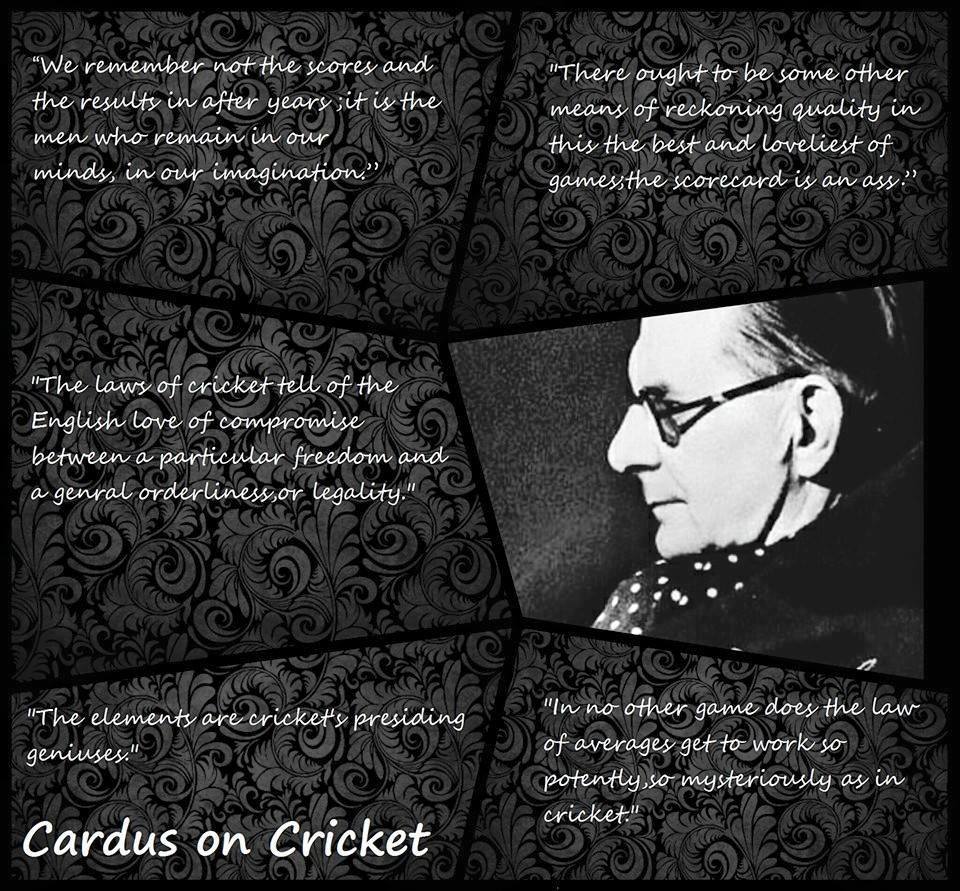
Victor Trumper the” greatest” batsman before the emergence of Don.
Cardus said, “We can no more get an idea of Trumper’s(winged) batsmanship by looking at the averages and statistics than we can find the essential quality of a composition by Mozart by adding up the notes”.To get some idea of a genius who lived a century ago, one should read Arthur Mailey and Cardus, a high priest of romantic cricket journalism who saw Trumper bat in England and Australia. There is a Beldam photograph of Trumper jumping out to drive, one can imagine what a classical artist he was. Many of his shorts like Ranji’s leg glance was seen for the first time only when he played them.
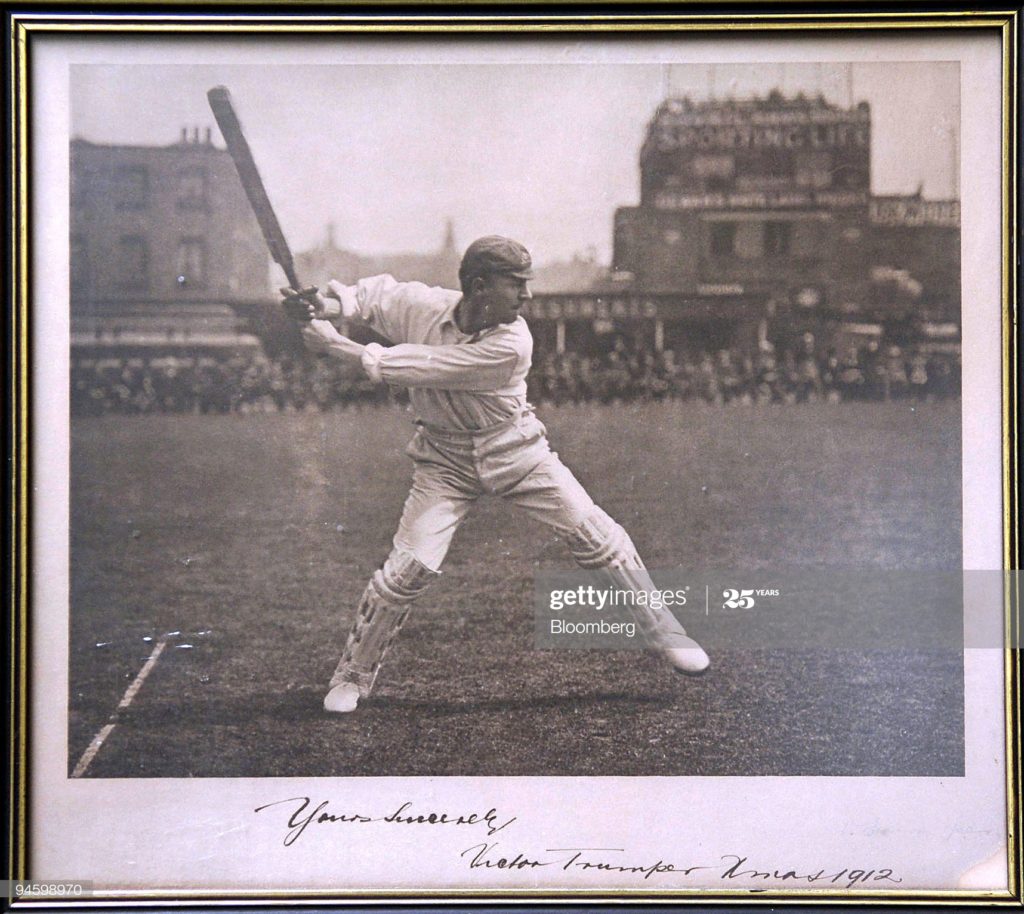
There are innumerable accounts of Cardus’ beautiful writing on various aspects of the game.
The other prominent writer was Dudley Carew who was overshadowed by Cardus.
Some of his quotes.
Cricket’s all right in spite of the newspapers, but the trouble is that three-quarters of us don’t know how to use our own gifts.
At the other end Gunn batted much as a man potters about a garden, digging his fork into a bed with an abstracted and absent-minded air.
A game of cricket is at work from the first ball to the last in shaping an outline or design for itself. Sometimes the design degenerates into dullness and incompetence, but design there always is, and there is an interest even in the tracing of the course and impulse of its failures.
If Neville Cardus was Don Bradman of Cricket writing then Roebuck was Sachin Tendulkar.
“On a train from Shimla to Delhi, there was a halt at one of the stations. The train stopped by for a few minutes as usual. Sachin was nearing a century, batting on 98. The passengers, railway officials, everyone on the train waited for Sachin to complete the century. This genius can stop time in India!“
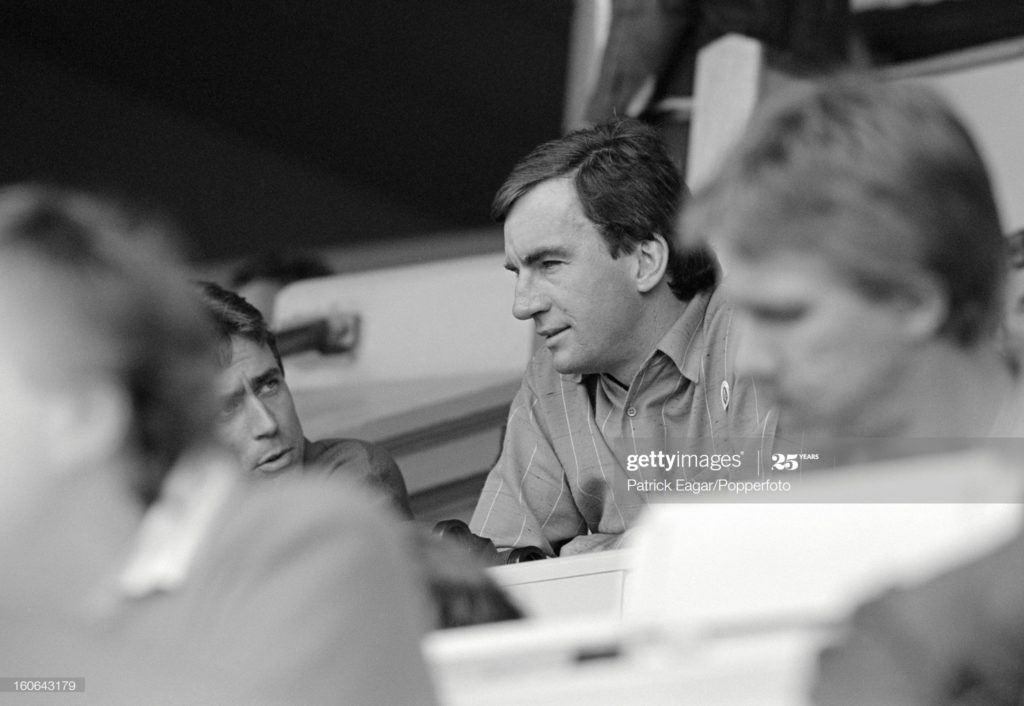
Some of his great works
It Never Rains … A Cricketer’s Lot
Sometimes I Forgot to Laugh
It Takes All Sorts: Celebrating Cricket’s Colourful Characters
In It To Win It: The Australian Cricket Supremacy.
Sydney Herbert Pardon, the longest-serving editor of Wisden’s Cricketers’ Almanack.
Journalism is not just about writers, and commentators have a significant role to play. Jonathan Agnew, Bill Frindall, David Lloyd, Fred Trueman, Brian Johnston, and Trevor Bailey are some of the most famous names in the cricketing world.
AFTER a few comments from Trevor Bailey, it will be Christopher Martin-Jenkins.” With these words, at the end of the Centenary Test against Australia at Lord’s in 1980, the distinctive voice of John Arlott ceased to be heard on BBC Radio’s ball-by-ball cricket commentaries.
Thus ended the career of a broadcaster who extended his presence beyond the bounds of the sport he described with such consummate style. ~ Times
24th June was a historic day in the history of cricket, first-ever Television coverage of a test match, at 11.29, Lords and rest is history.
Coincidentally BBC Sport first television cricket correspondent and one of the most beautiful cricket commentators Brian Johnston was also born on this day.
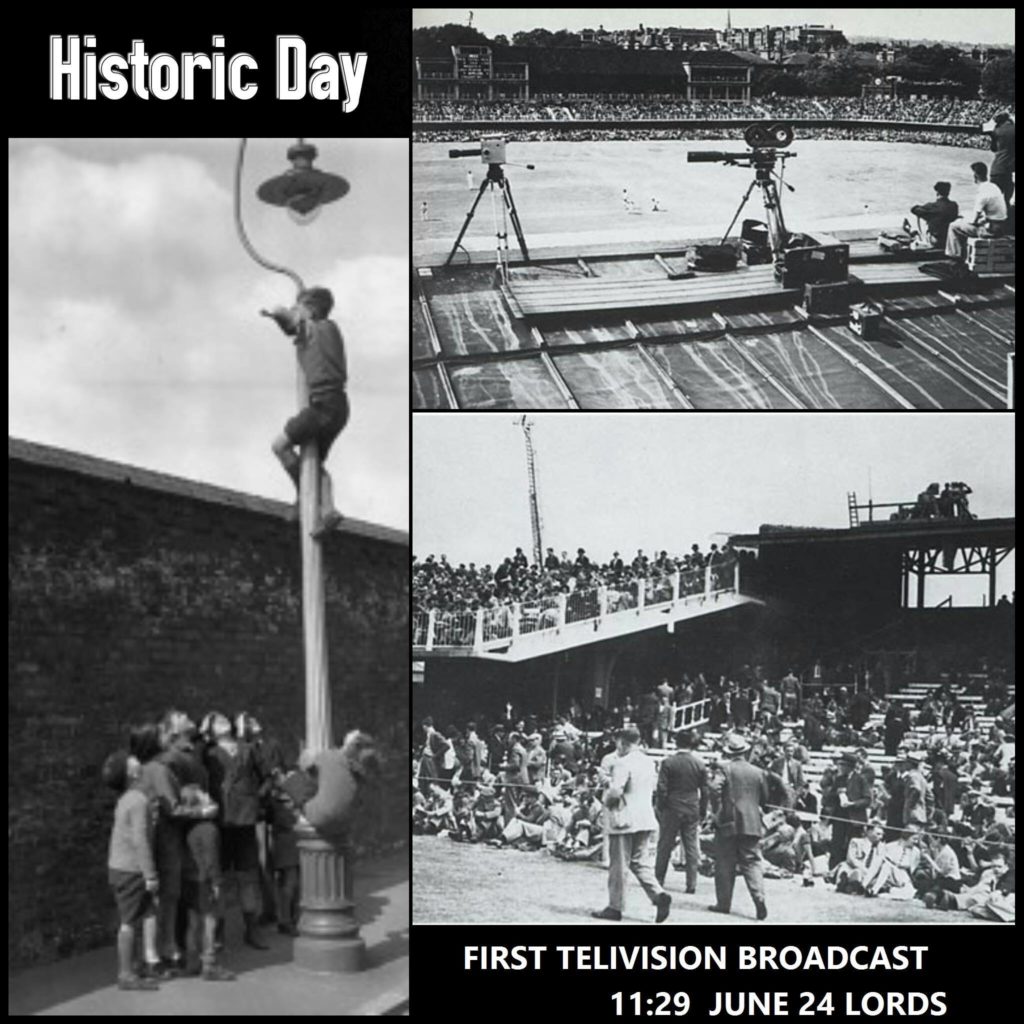
On World Sports Journalist Day we present you some of the renowned voices of cricket.
- E. W. Swanton (1938–1975)
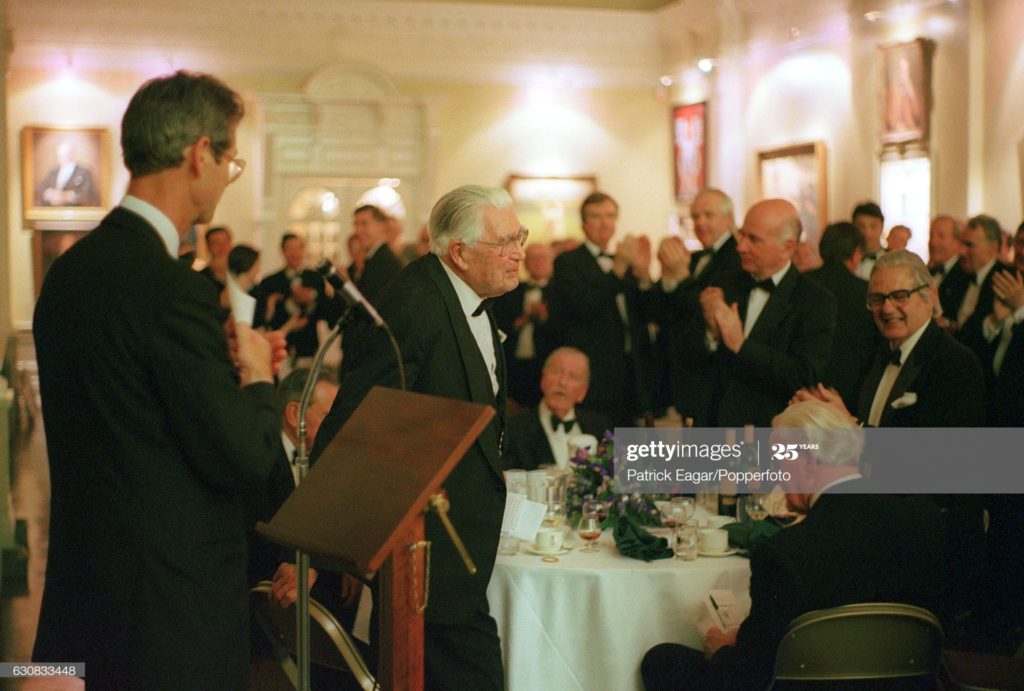
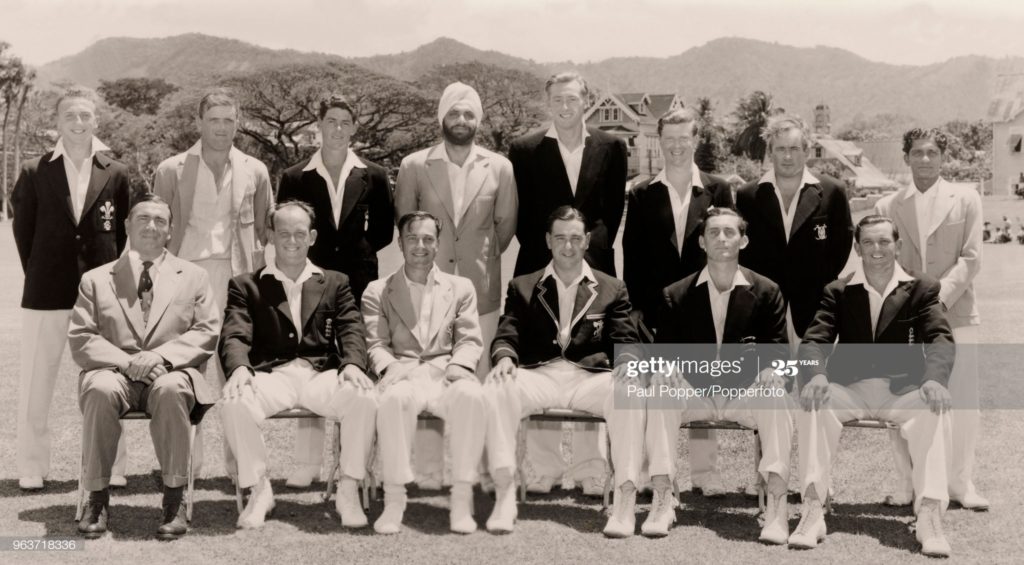
- Rex Alston (1945–1964)
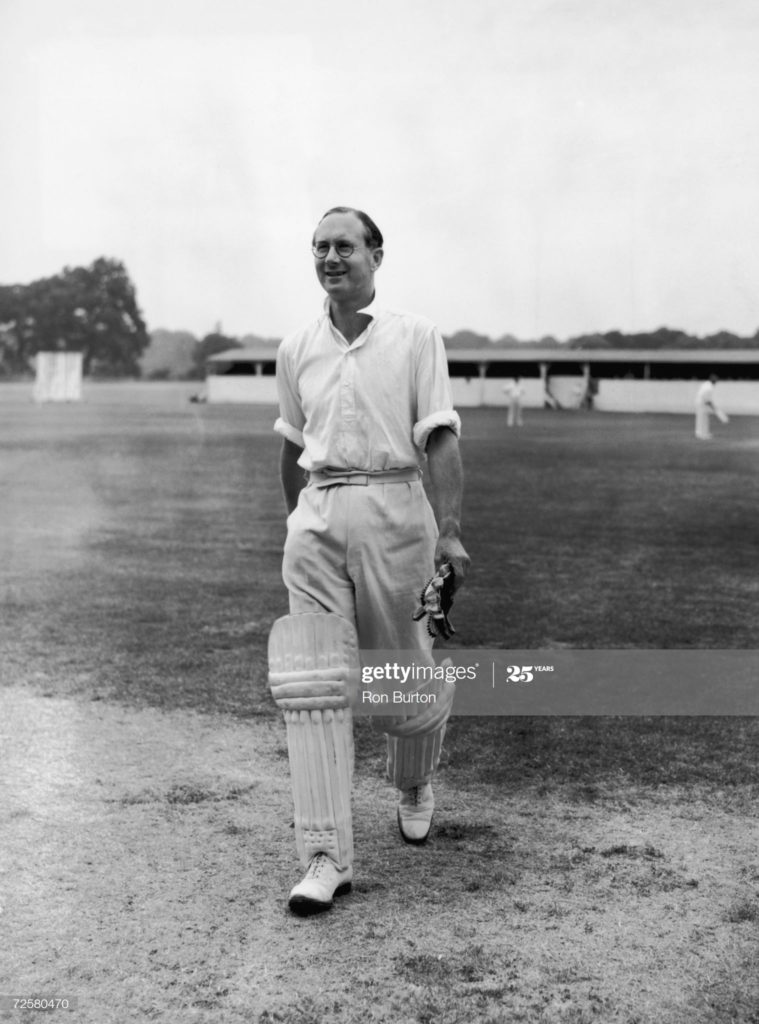
- John Arlott (1946–1980)
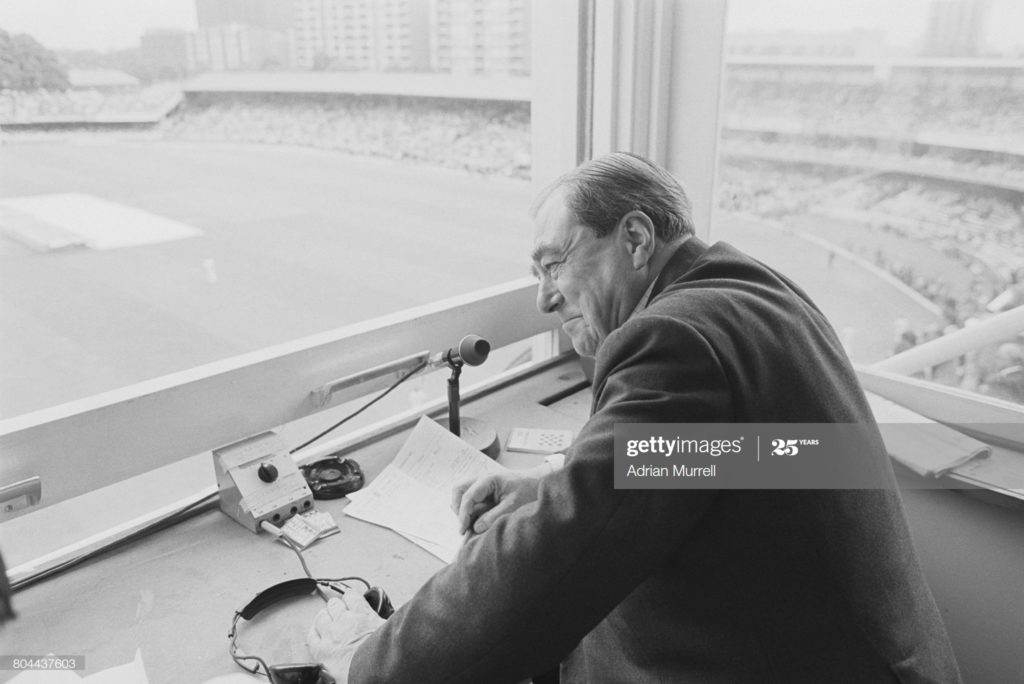
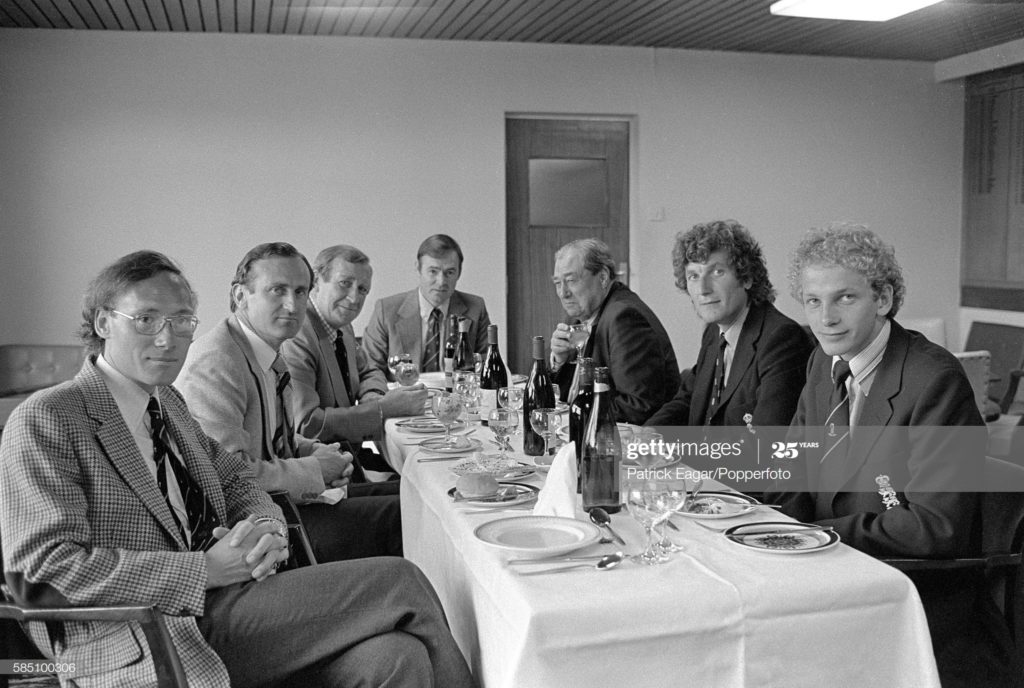
- Alan Gibson (1962–1975)
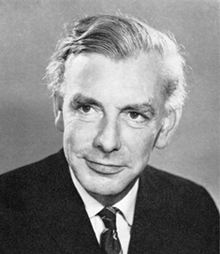
- Brian Johnston (“Johnners”) (1966–1993)
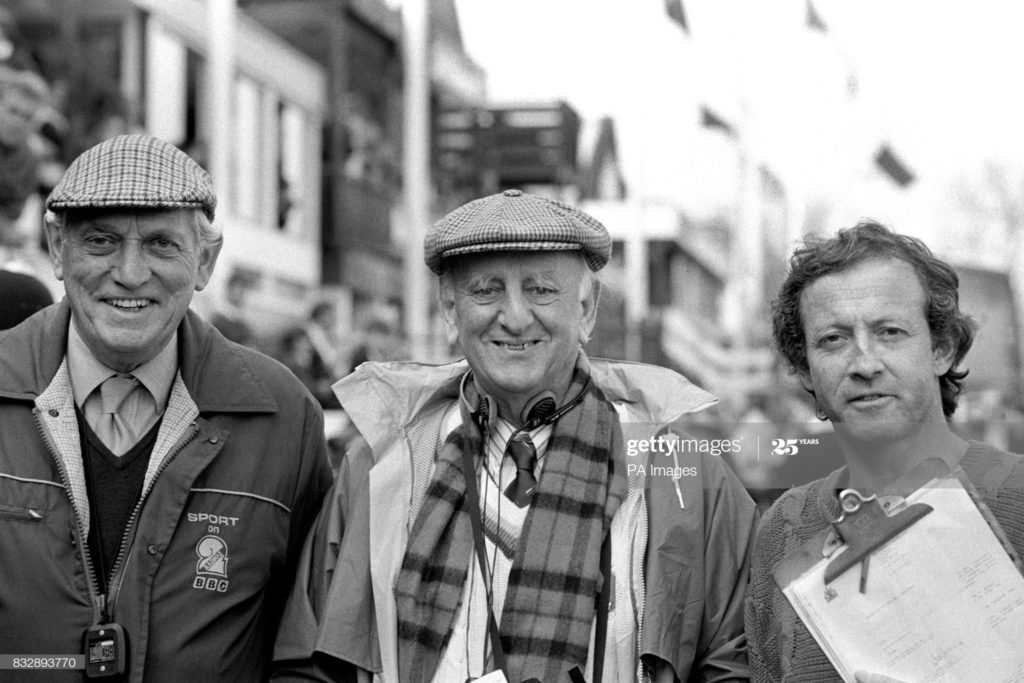
- Christopher Martin-Jenkins (“CMJ”) (1973–2012)
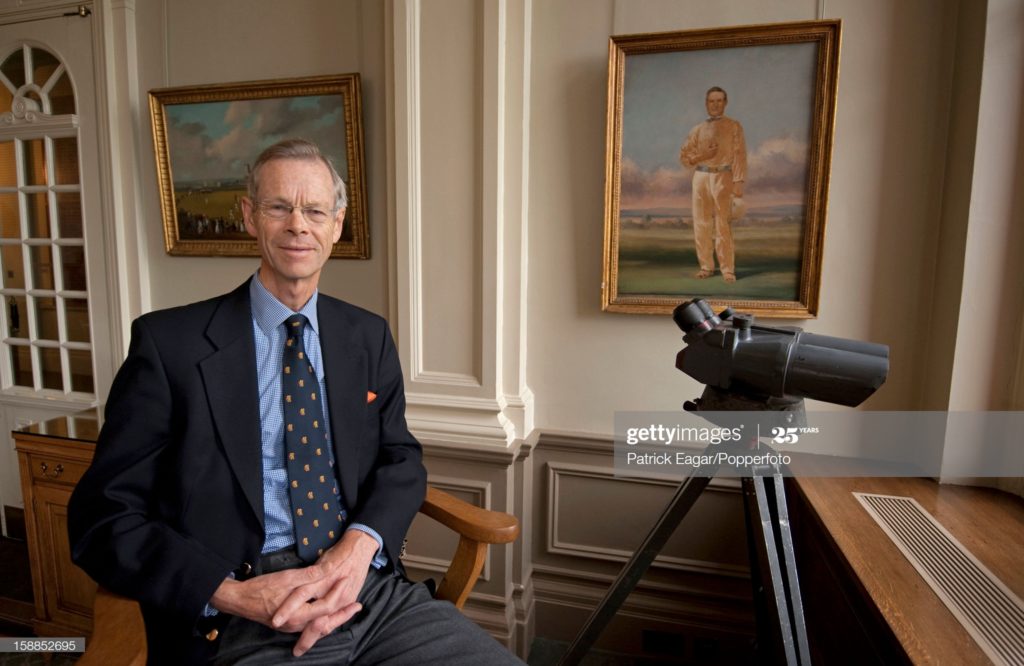
CMJ was the heart and soul of Test Match Special on #BBC Radio.He joined the elite club of being President of CWC and MCC.
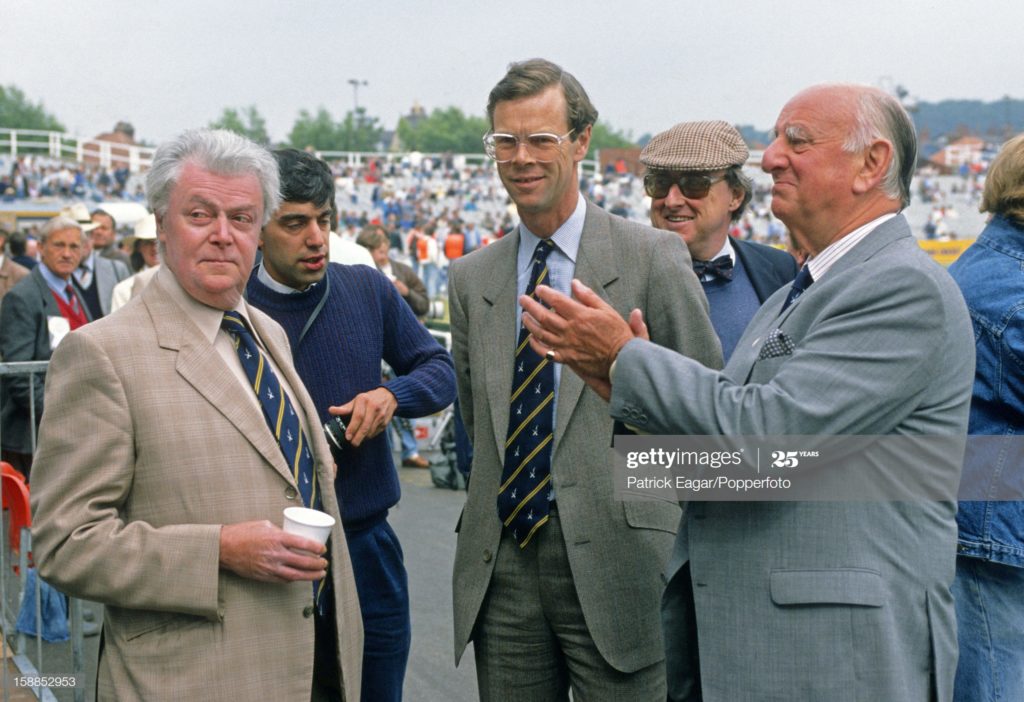
- Don Mosey (“The Alderman”) (1974–1991)
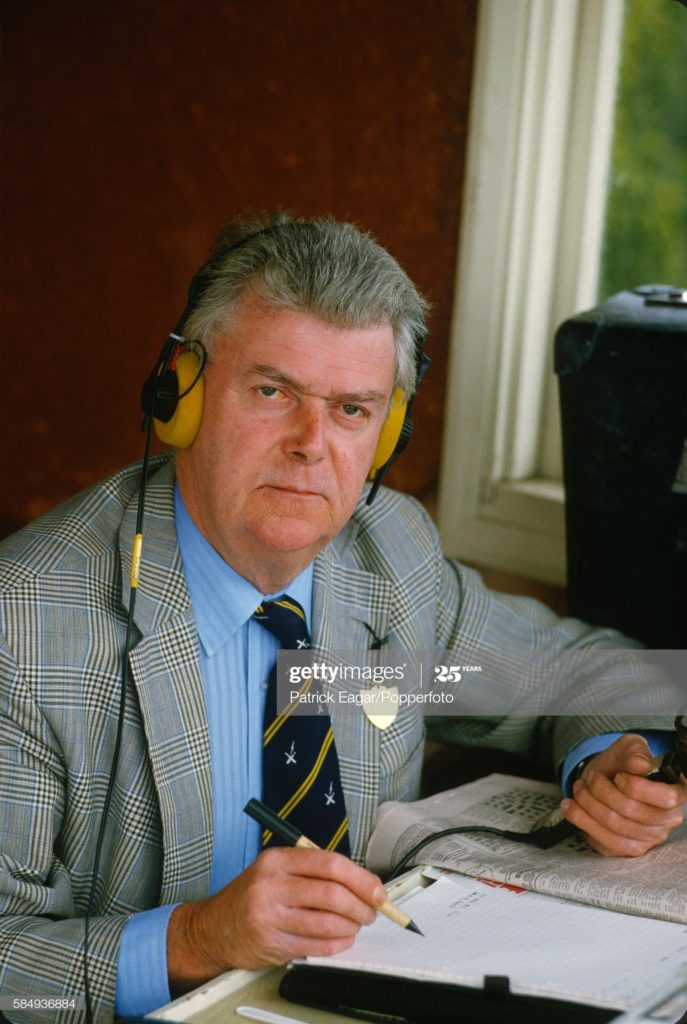
- Tony Cozier
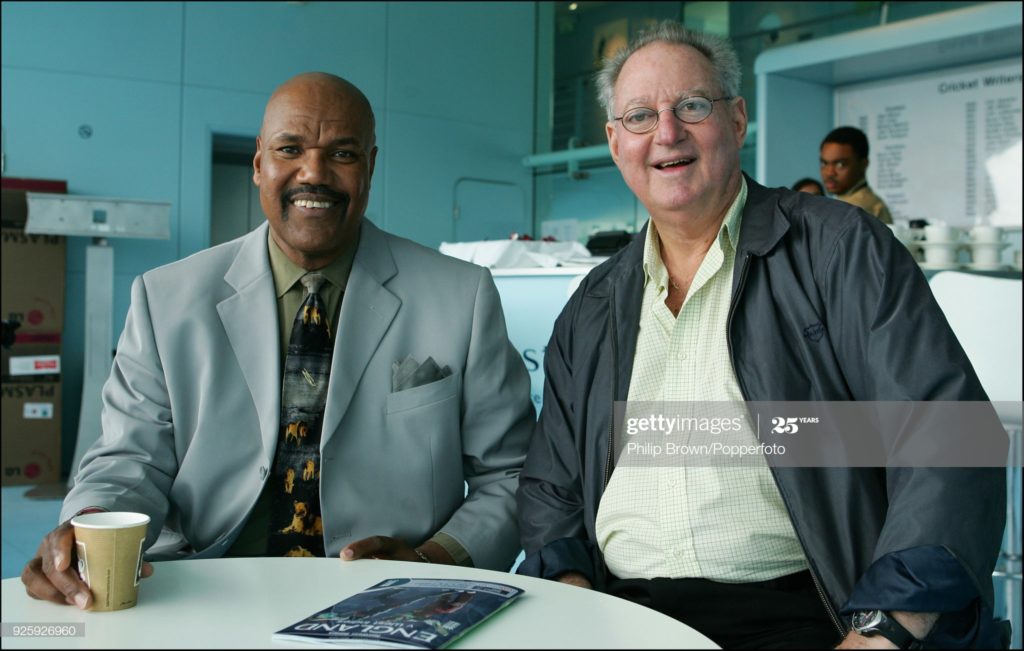
- Bill Frindall, the ‘ Bearded Wonder’
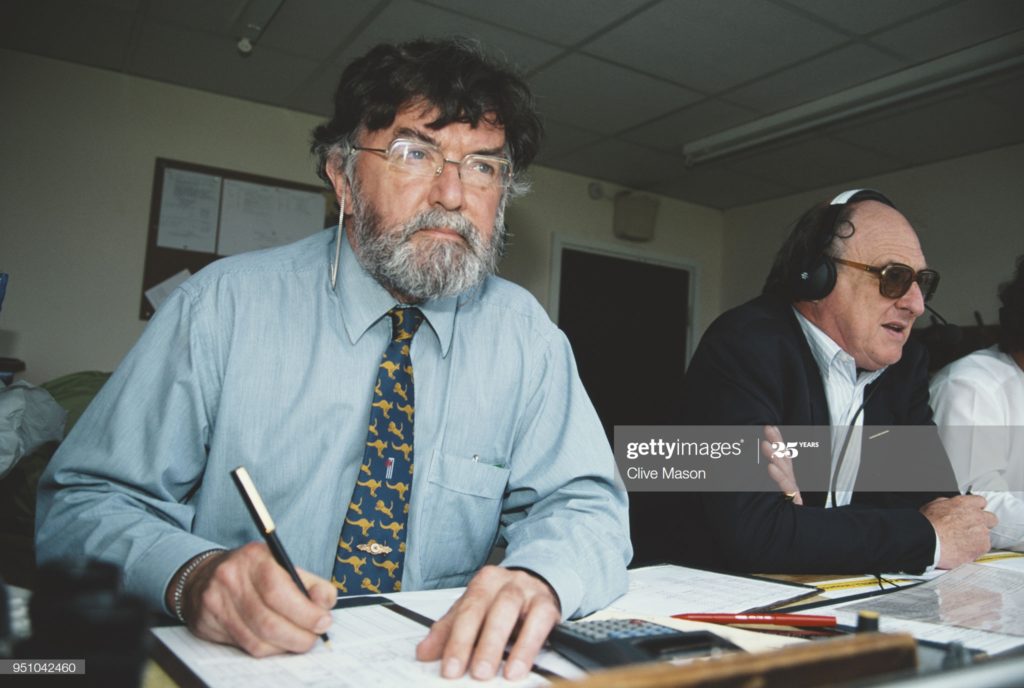
- Henry Blofeld (“Blowers”) (1974–1991, 1994–2017)
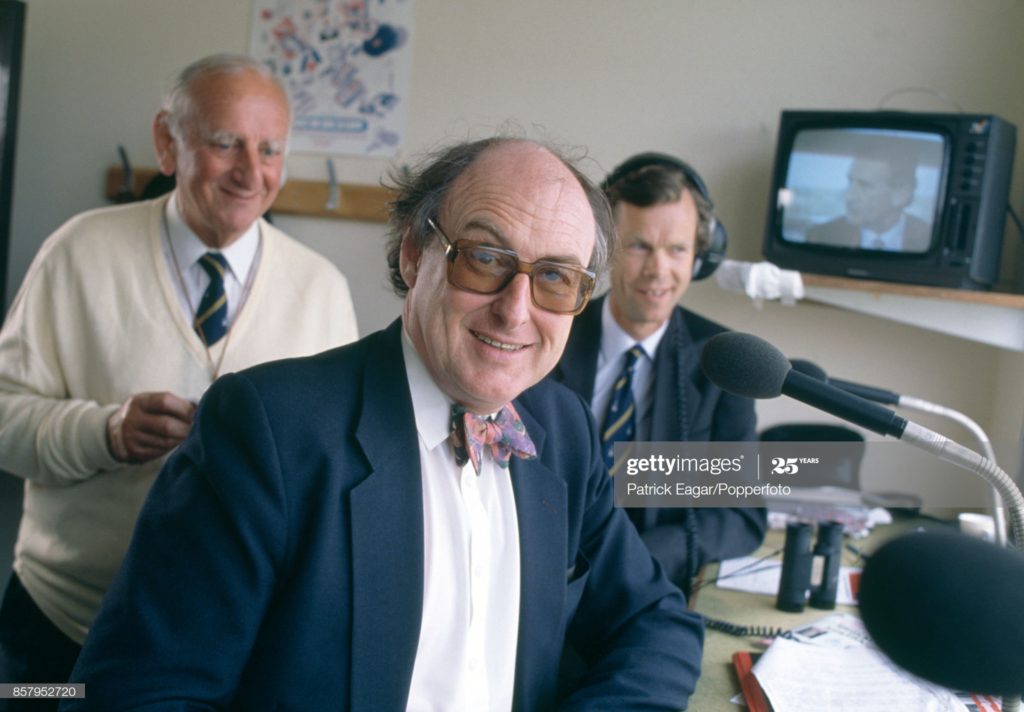
- Jonathan Agnew
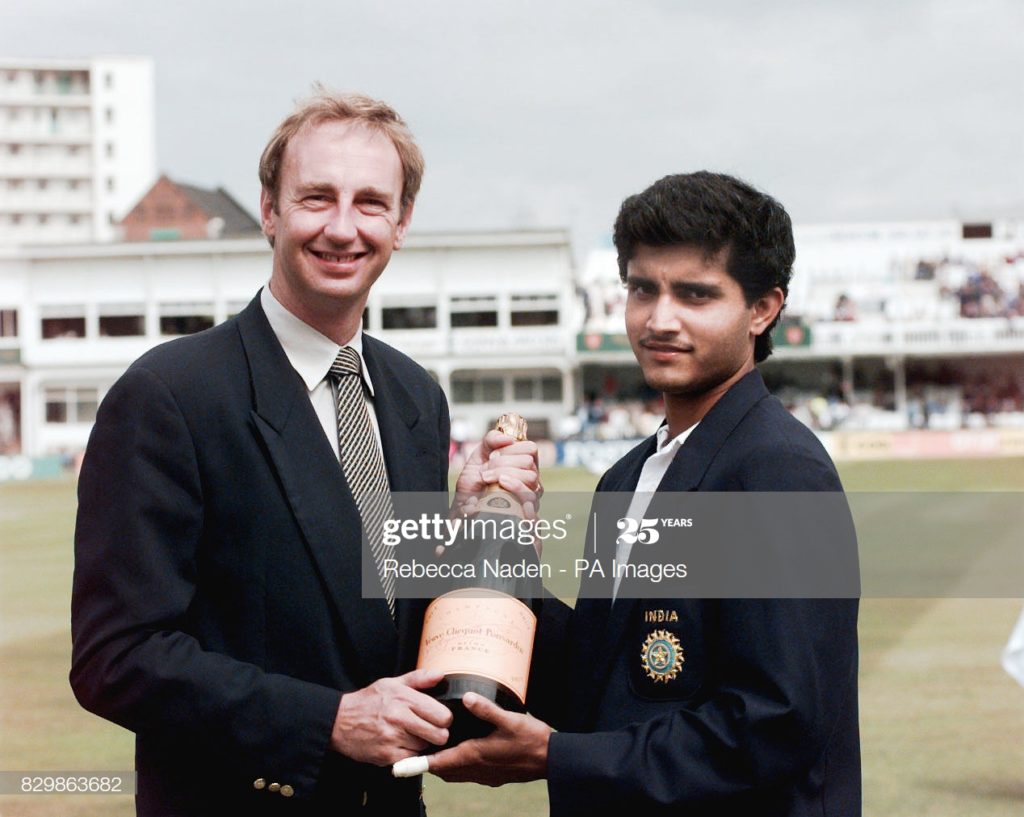
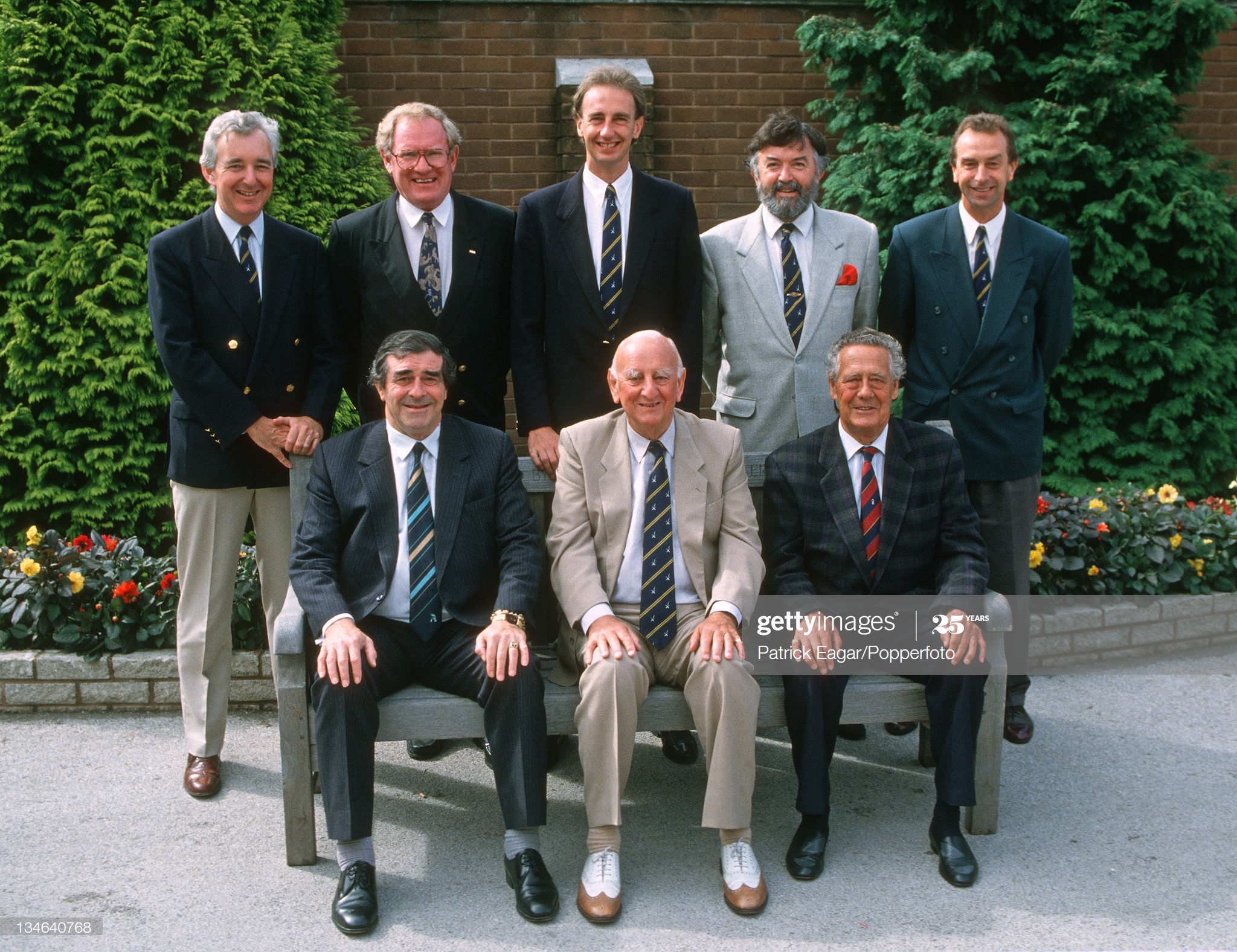
Great photos and memories.